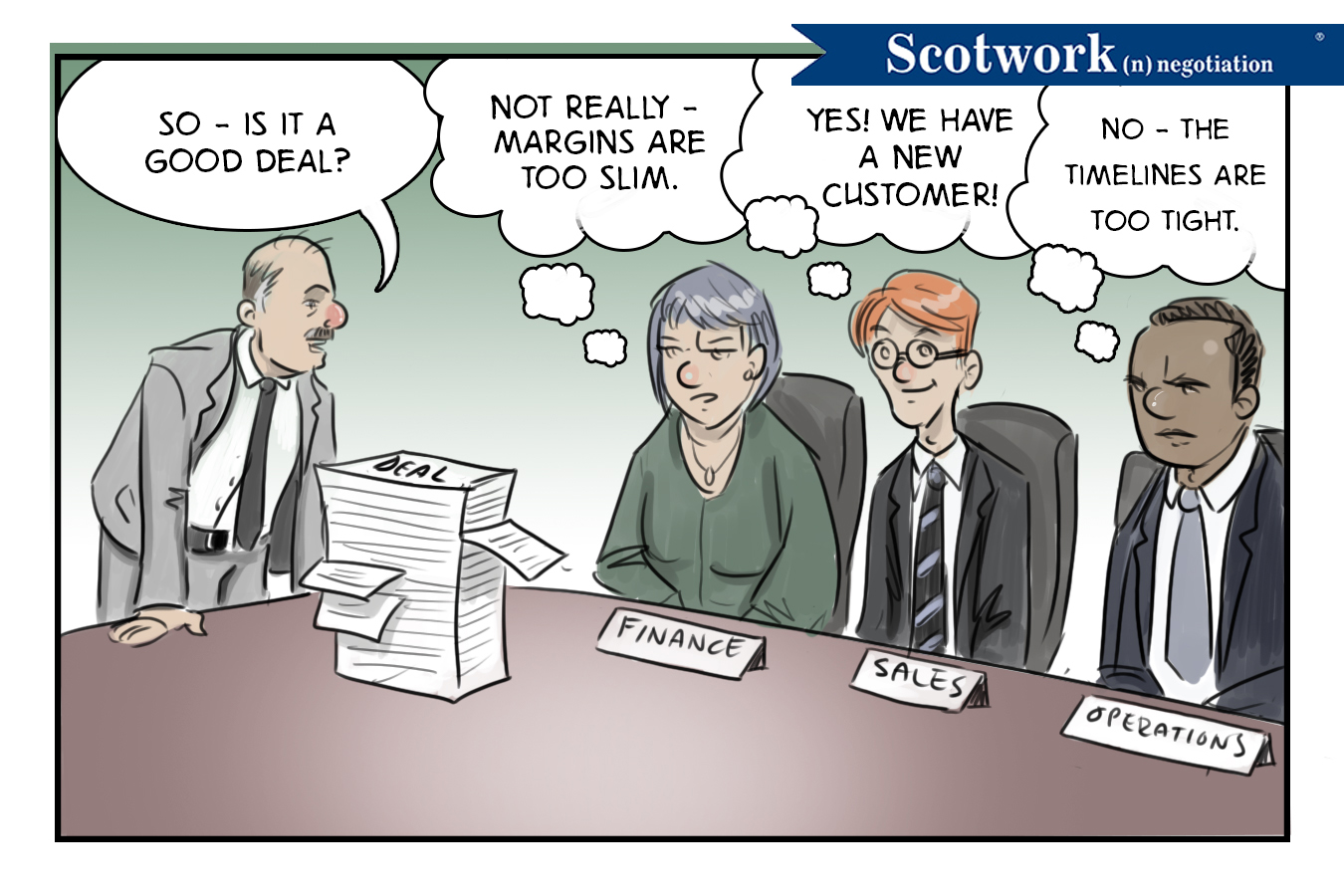“Is it a good deal?” That was the question put forth by the CEO to the executive team. Sales liked the deal because it secured a new customer. Finance wasn’t thrilled by it because the margins were slim. Operations wasn’t happy with it because the delivery timelines were too narrow. Legal was happy because all of the contract’s terms were favorable. After working on this deal for six months, the CEO couldn’t believe that no one could answer her question. She knew this had to change.
Unfortunately, this scenario — the inability to assess a deal’s value — is all too common. In fact, when we survey dealmakers, asking them the question, “Can you identify the benefits of your negotiation’s outcome?” only 46% say they always can. In other words, more than half of the time they can’t! Moreover, when we inquire about the long-term value of their deals, 72% can’t identify it. What’s going on here?
The breakdown of measuring value occurs primarily in three areas:
- Lack of how the organization defines value.
- Absence of clearly defined deal success.
- Inability to value deals over time.
Measuring a deal’s value can be a complex process, but it simply can’t be done without repairing these breakdowns. Below, is guidance for how to measure that value more consistently.
Defining Organizational Value
Working with a number of companies across varied industries, we find that most of them take a very narrow view of a deal’s value. It’s usually financially driven, primarily taking into consideration revenue and/or margin. Certainly those are important factors, but not all deals have financial drivers. In addition, financial drivers aren’t always the measure for all stakeholders. Therefore, the first step to consistently measuring value is to establish benchmarks for success that key stakeholders align to for the majority of deals.
Clearly Defining Deal Success
Not properly planning for a negotiation is equivalent to planning for failure. Good negotiation planning requires a structured approach, documentation, and collaboration with key stakeholders. A structured approach will ensure consistent deal preparation across an organization. Documentation not only provides the ability to more easily communicate a negotiation’s strategy and objectives, but it also allows for the proper tracking of critical measures. Lastly, confirming what is important to all key stakeholders, and how they view success, is critical to getting their buy-in and support, as well as ensuring that all relevant value points are captured.
Valuing Over Time
When it comes to evaluating deal success, dealmakers are frequently prisoners of the moment. They either fail to take into account how time will impact their deal or they don’t re-evaluate their deals throughout the lifespan of the deal. Evaluating a deal over time is made more difficult by the lack of documentation around its planning process and/or evolution. When a dealmaker prepares properly and retains their planning documents, they have the ability to compare an evolved deal to its original vision and intent.
Valuing deals requires planning, documentation, and collaboration. Taking the above steps will get you headed in the right direction. Then you can move from, “Did we get a good deal?” to “How can we create a better deal?”
Did You Get A Good Deal?
If you don’t know, you should. We can work with you to answer that question. We can help your team define this organizationally or we can help you define it in your next negotiation. We can be your advisor, your coach, and your trainer. Whether you bring us in to create your strategy, assist you with preparation, or develop your team’s negotiating skills, we can help you win at the negotiating table.
We’ve been consulting and teaching our proven negotiation methodology for over 40 years. We know the process, we can identify the skills required, and we have the techniques to negotiate better deals for you. Call us and let’s discuss what we might be able to do for you.

